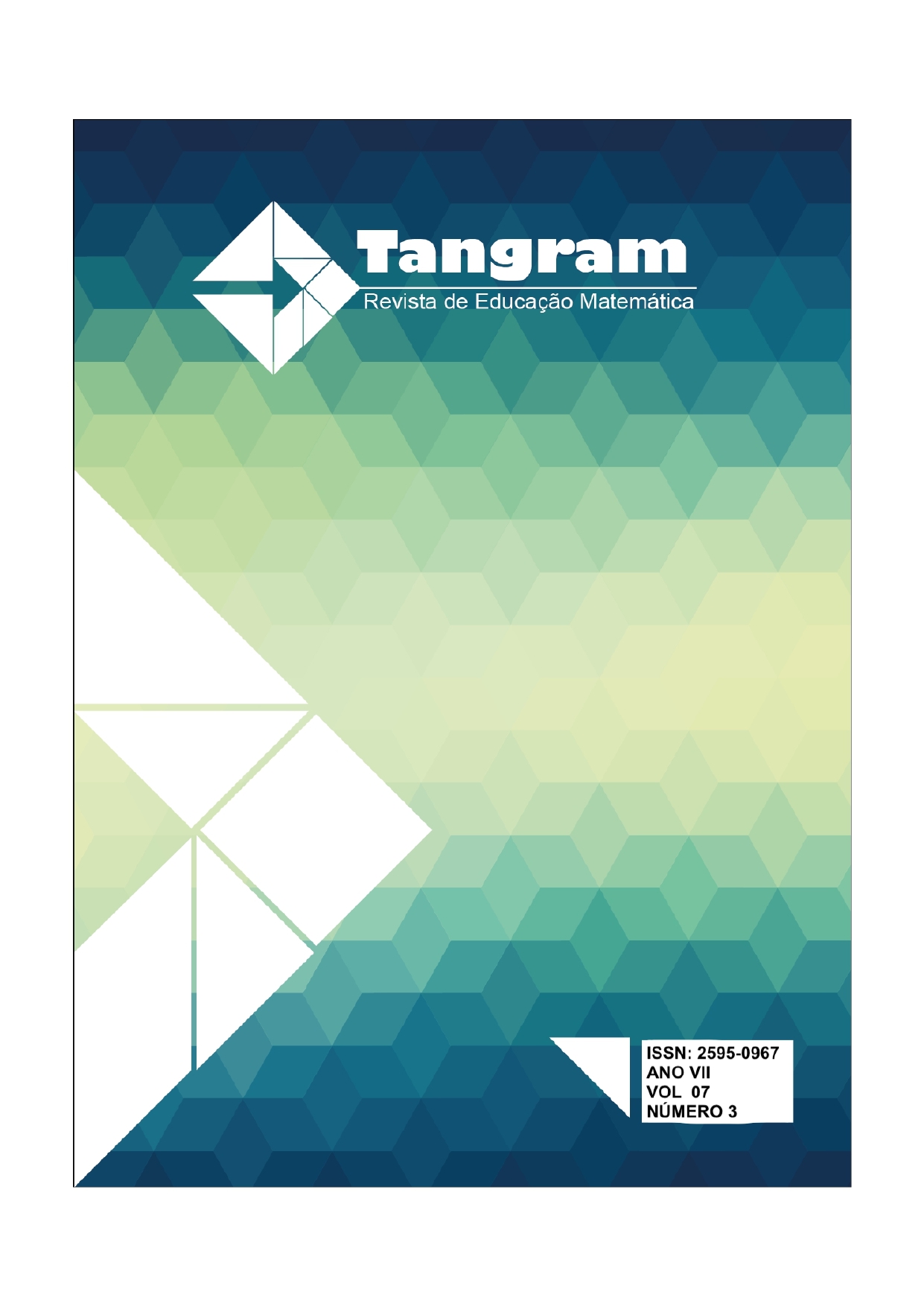Um jogo de tabuleiro para integrar Matemática e Pensamento Computacional no Ensino Fundamental
DOI:
https://doi.org/10.30612/tangram.v7i3.17821Keywords:
Atividade Desplugada, Educação Matemática, Habilidades do PCAbstract
This study explores the application of the board game “Tractor Wars: The Battle against the Pests” as an unplugged activity for integrating mathematical concepts into the pillars of Computational Thinking. The main objective is to evaluate the game, which contains obvious elements of the Cartesian Plane, Cartesian Coordinate Systems and Ordered Pairs, and determine if it is possible to revisit Computational Thinking concepts through this game. The study was conducted in two classes in a countryside school in a municipality in western Paraná. The selected mathematical topics became clear during the game. Regarding the review of the skills of computational thinking, it was observed that students could easily identify the skills of pattern recognition and decomposition in different phases of the game, although there were challenges in understanding the concepts of algorithm and abstraction.
Downloads
References
Brackmann, C. P. (2017). Desenvolvimento do Pensamento Computacional Através de Atividades Desplugadas na Educação Básica. (Tese de Doutorado) – Universidade Federal do Rio Grande do Sul, Porto Alegre, RS. Recuperado em 23 de maio, 2024, de http://www.lume.ufrgs.br/handle/10183/172208.
Brasil. Ministério da Educação. (2018). Base Nacional Comum Curricular. Brasília. Recuperado em 23 de maio, 2024, de http://basenacionalcomum.mec.gov.br/images/BNCC_EI_EF_110518_versaofinal_site.pdf
Brasil. Conselho Nacional de Educação. Câmara de Educação Básica. (2022) Parecer CNE/CEB nº 2/2022, aprovado em 17 de fevereiro de 2022. Recuperado em 29 de maio, 2024, de https://abrir.link/mQ6wP.
Instituto Brasileiro de Geografia e Estatística (IBGE). (2020). Paraná: Nova Laranjeiras. Recuperado em 23 de maio, 2024, de https://cidades.ibge.gov.br/brasil/pr/nova-laranjeiras/panorama
Ministério da Educação. (2018). Base Nacional Comum Curricular: Ensino Fundamental: Matemática (5º Ano). Habilidade EF05MA14. Recuperado em 23 de maio, 2024, de http://basenacionalcomum.mec.gov.br/images/BNCC_EI_EF_110518_versaofinal_site.pdf
Ministério da Educação. (2018). Base Nacional Comum Curricular: Ensino Fundamental: Matemática (5º Ano). Habilidade EF05MA15. Recuperado em 23 de maio, 2024, de http://basenacionalcomum.mec.gov.br/images/BNCC_EI_EF_110518_versaofinal_site.pdf
Ministério da Educação. (2018). Base Nacional Comum Curricular: Ensino Fundamental: Geografia (8º Ano). Habilidade EF08GE02. Recuperado em 23 de maio, 2024, de http://basenacionalcomum.mec.gov.br/images/BNCC_EI_EF_110518_versaofinal_site.pdf
Kaminski, M. R., Klüber, T. E., & Boscarioli, C. (2021). Pensamento computacional na educação básica: Reflexões a partir do histórico da informática na educação brasileira. Revista Brasileira de Informática na Educação, 29, 604-633. DOI: https://doi.org/10.5753/rbie.2021.29.0.604
Vicari, R. M., Moreira, A. F., & Menezes, P. F. B. (2018). Pensamento computacional: revisão bibliográfica – Versão 02. UFRGS/MEC. Recuperado em 23 de maio, 2024, de https://lume.ufrgs.br/handle/10183/197566.
Downloads
Published
How to Cite
Issue
Section
License
Copyright (c) 2024 TANGRAM - Revista de Educação Matemática

This work is licensed under a Creative Commons Attribution-NonCommercial-ShareAlike 3.0 Unported License.
Authors must accept the publication rules when submitting the journal, as well as agree to the following terms:
(a) The Editorial Board reserves the right to make changes to the Portuguese language in the originals to maintain the cultured standard of the language, while respecting the style of the authors.
(b) Authors retain the copyright and grant the journal the right to first publication, with the work simultaneously licensed under the Attribution-NonCommercial-ShareAlike 3.0 Brazil (CC BY-NC-SA 3.0 BR) that allows: Share - copy and redistribute the material in any medium or format and Adapt - remix, transform, and create from the material. CC BY-NC-SA 3.0 BR considers the following terms:
- Attribution - You must give the appropriate credit, provide a link to the license and indicate whether changes have been made. You must do so under any reasonable circumstances, but in no way that would suggest that the licensor supports you or your use.
- NonCommercial - You may not use the material for commercial purposes.
- Sharing - If you remix, transform, or create from material, you must distribute your contributions under the same license as the original.
- No additional restrictions - You may not apply legal terms or technological measures that legally restrict others from doing anything that the license permits.
(c) After publication, authors are allowed and encouraged to publish and distribute their work online - in institutional repositories, personal page, social network or other scientific dissemination sites, as long as the publication is not for commercial purposes.






